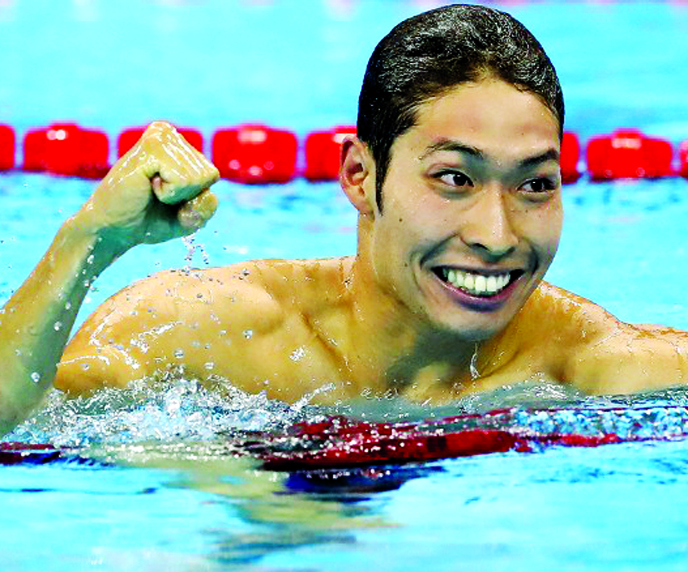
AFP, Tokyo :
Japan’s Olympic champion Kosuke Hagino admits he was swimming “slower than the women” during a rut after Rio, but has backed himself to win gold at this year’s Tokyo games.
The 25-year-old swept to the Olympic title in the 400 metres individual medley four years ago before suffering a lengthy hangover triggered by a loss of motivation that saw him take a three-month break from the sport.
Hagino, who also took silver in the 200m behind American legend Michael Phelps in Rio, has since been overtaken in Japan’s pecking order by Daiya Seto.
But Hagino insists he can see light at the end of the tunnel and credits a change in mindset for helping him rediscover his mojo.
“I wasn’t swimming well last year and there’s still room for improvement,” he told Japan’s Nikkan Sports daily.
“My first 200m IM took about three minutes, 45 seconds (his Japanese record stands at 1:55.07). I was slower than the women. It was a real struggle.
“But what I do know is that if I swim at my best, no one will beat me,” added Hagino, a five-time Asian Games champion.
“I used to have a habit of focusing on the bad points in myself. Now I look at the bad stuff as a starting point. It’s a different mentality.”
Japan’s Olympic champion Kosuke Hagino admits he was swimming “slower than the women” during a rut after Rio, but has backed himself to win gold at this year’s Tokyo games.
The 25-year-old swept to the Olympic title in the 400 metres individual medley four years ago before suffering a lengthy hangover triggered by a loss of motivation that saw him take a three-month break from the sport.
Hagino, who also took silver in the 200m behind American legend Michael Phelps in Rio, has since been overtaken in Japan’s pecking order by Daiya Seto.
But Hagino insists he can see light at the end of the tunnel and credits a change in mindset for helping him rediscover his mojo.
“I wasn’t swimming well last year and there’s still room for improvement,” he told Japan’s Nikkan Sports daily.
“My first 200m IM took about three minutes, 45 seconds (his Japanese record stands at 1:55.07). I was slower than the women. It was a real struggle.
“But what I do know is that if I swim at my best, no one will beat me,” added Hagino, a five-time Asian Games champion.
“I used to have a habit of focusing on the bad points in myself. Now I look at the bad stuff as a starting point. It’s a different mentality.”

